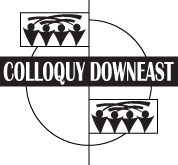Challenges Facing The Global News Media
| |||||||
Reliable news and information are critical to our ability to navigate this world. We rely on news and information to make informed decisions for our families, on issues such as improving our schools or keeping our families healthy. We also rely on news and information to hold the powerful to account, through both the ballot box and through journalism’s ability to shine a light on public malfeasance.
Despite the extraordinary technological advances that have defined the modern information age, it is getting ever harder to find the information we need to protect “informed choice.” This trend threatens our ability to navigate the big challenges of our world, from climate change to economic disparity to protecting our democracy. This trend is pronounced in the US and is often more devasting in other parts of the world.
This colloquy will take a deep dive into the challenges facing the global news media today, while also exploring trends that provide hope that news media serving the public interest will continue to survive and thrive into the future.
Discussion topics during the four sessions of this colloquy include:
- The challenges facing the global news media, from the rise in censorship and attacks on journalism, to the pollution of mis- and dis-information, to the market collapse of the news industry.
- Mis- and dis-information: Global trends and viable solutions.
- Trends in US media, including recent developments in Maine.
- Considerations on the future of journalism.
Syllabus/Reading
WEEK 1: An overview of the challenges facing the global news media, from the rise in censorship and attacks on journalism, to the pollution of mis- and dis-information, to the market collapse of the news industry.
Materials:
- Reuters Institute, “Journalism, media, and technology trends and predictions 2024”. Found here.
- Internews, 2024-2026 Strategy, “For Your Information” found here.
Ice-breaker: What is your first memory of a news story that made a difference in your life?
Discussion Topics:
- In this modern information world, does journalism even matter? Making the case for why media matters.
- What are the challenges facing journalism and independent news media today? What are some of the innovations emerging to address those challenges? What aspects of ‘traditional’ journalism do we need to sustain into the future?
WEEK 2: Mis- and dis-information: Global trends and viable solutions.
Materials:
- First Draft News. “Understand Information Disorder”. Found here.
- Carnegie Endowment. “Countering Disinformation Effectively: An Evidence-Based Policy Guide”. Found here.
Ice-breaker: Have you ever fallen victim to mis or dis-information? How did it happen and what did you learn?
Discussion Topics:
- Mis and disinformation are not new, but have exploded due to digital connections, particularly with social media. What parts of our lives are most affected by this “infodemic”?
- What tools are available to help people navigate a world flooded with mis and disinformation? What tactics do you rely on?
WEEK 3: Bringing it home: Trends in US media, including recent developments in Maine.
Materials:
- Rebuild Local News. “The Crisis: Research on Local News”. Found here.
- NYT. “Maine Newspaper Bought by Non-Profit”. July 11, 2023. Article attached.
- Northwestern University. “State of Local News Report 2023”. Found here.
Ice-breaker: What sources do you rely on for your regular news consumption?
Discussion Topics:
- How has the decline in local news impacted you and your community?
- What innovations in local news inspire you or give you hope?
Special Guest: John Boit, Managing Editor of the Penobscot Bay Press
WEEK 4: Artificial Intelligence and the “polluting” of the Internet: what is the future of journalism?
Materials:
- Columbia Journalism Review. “Artificial Intelligence in the News”. Felix Simone, Feb. 6, 2024. Found here.
- Reuters Institute. “AI and Journalism: What’s Next”. David Caswell, Sept. 19, 2023. Found here.
Ice-breaker: Have you read a news article generated by AI or have you used AI to generate answers to real-time events? Were the stories or answers accurate and enlightening?
Activity: How easy is this? Let’s build a newspaper using AI.
Discussion Topics:
- Generative AI is the biggest game changer in the news industry since the rise of social media. What are some of the concerns with these changes? What are some of the benefits that AI brings to the news industry?
- What other trends do you see as impacting the future of news, either positively or negatively?
▼ Registration
Registration
Bookings are now closed (or the colloquy has been cancelled)
We aren't currently accepting bookings for Challenges Facing The Global News Media.
If you are trying to pay for a colloquy that you've already attended or have questions about refunds, please contact our Treasurer to work out the details.
▲ Hide...
